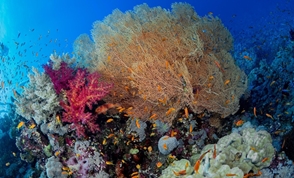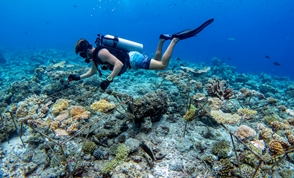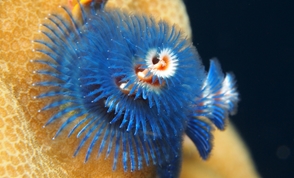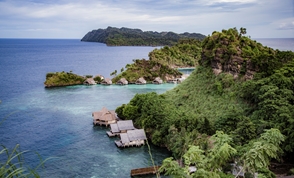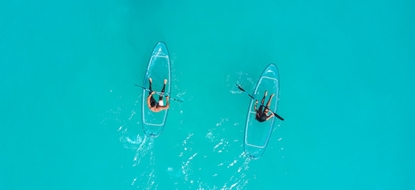Five ways diving holidays can boost your mental health
If you’ve ever been diving, you’ll know exactly what we mean by that feeling of calm as you sink below the surface and become weightless, entering the silent underwater realm. The experience feels almost meditative, as you regulate your breathing and absorb the sight of colourful marine life swirling before your mask. It’s more than just a feeling, though. There is science to back up this sense of emotional wellbeing. A study conducted by the University of Sheffield’s Medical School supports the claim that diving has a positive impact on depression, social functioning and insomnia. So, if you didn’t already have an excuse to book your next luxury diving holiday, here are five reasons why getting down deep can boost your wellbeing and improve your mood.

And breathe
Yoga fans will already know the health benefits of prayanama, a form of breath control used to reduce tension and stress. Similarly, controlled, steady breathing is core to diving. The technique is something that is taught and developed from your very first dive, with the cardinal rule being never to hold your breath. Breath control has enormous health benefits and induces a calm, meditative state of mind. It also has positive physiological impacts such as increasing lung capacity, strengthening the respiratory system and increasing oxygen intake. This in turn stimulates circulation, improves organ function and raises energy levels.

Feel a sense of calm
There’s something deeply relaxing about being submerged in water, as anyone who likes a bubble bath after a long day can attest. Did you know that it has scientifically-proven health benefits, though? In 1954, the neurophysiologist Dr John C Lilly invented flotation therapy, demonstrating that weightlessness can put the body into a state of total relaxation. It remains incredibly popular within the wellbeing industry, with research showing that it can help people suffering with anxiety and stress-related disorders, as well as muscle pain and depression. The same benefits can be found with scuba diving, where the entire body is submerged and weightless. In addition, the blue hues of the ocean are known to create calming chemicals in the body. The effect is often dubbed ‘Blue Mind Theory’, describing the mildly meditative state people fall into when they are near, in, under or on water.

Build fitness and stamina
Exercise is often prescribed for individuals struggling with mental health challenges. However, many people find running and other kinds of intense physical activity hard to keep up. Scuba diving is low impact and kind to joints and ligaments, but is an excellent form of exercise, engaging the entire body with slow swimming strokes and continuous body adjustments.
Grow in confidence
The thrill of stepping outside your comfort zone and overcoming challenges is a surefire way to build confidence and self-esteem. Your first dive may seem daunting, but as you progress and gain certification, the sense of achievement helps to boost your body’s ‘happy hormones’, dopamine and serotonin. Maintaining healthy levels of these hormones contributes to good mental health and wellbeing.

Widen your social circle
Scuba diving brings together people from all backgrounds and provides an easy way to form bonds. The buddy system means it’s important to trust and communicate with your dive partner underwater through hand signals. If you find making new friends challenging, it’s a great opportunity to build meaningful connections with like-minded people. There’s also the deeply rewarding chance to connect with a new destination, engaging with local communities and creating a more sustainable travel experience.



